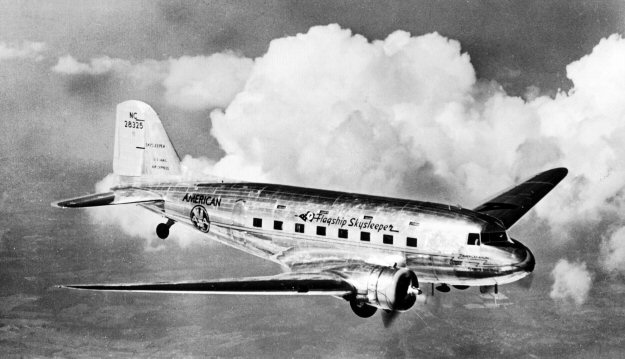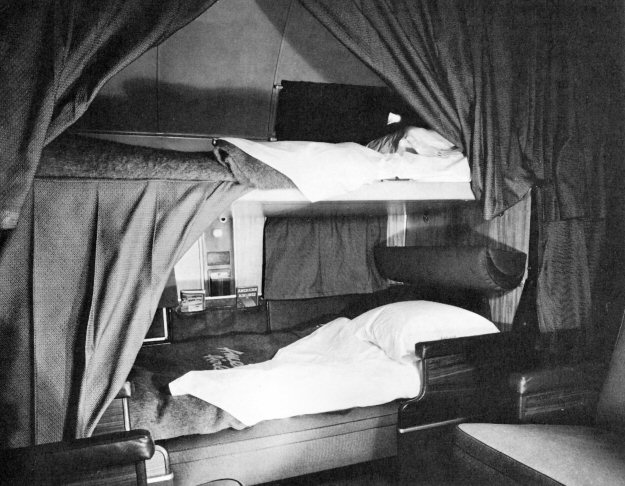American Airlines
Douglas DST-217C NC28325
(c/n 2263)

American Airlines
had long advocated offering sleeper accommodation on their
trans-continental routes.
Doubtless they felt the need to offer comparable luxury to that given
by the Railroad Pullman cars of
the day. In the
summer of 1934 C.R. Smith, President of the airline, approached Douglas
with a view
to acquiring a sleeper
version of the popular DC-2. Douglas at first said it
couldn't be done, but when
Smith upped the ante and stated
he would buy 20 such machines (unheard of in those days) Douglas
avowed that, indeed, it might be
possible. The result was the Douglas DST, the prototype of which,
in essence, became the
progenitor of all the DC-3 variants to follow. The example
above was a late
model DST, and was delivered
in 1940. The DST was fitted with 14 to 16 berths (see photo
below)
which made up into 28
regular seats during the daytime. During WW II
NC28325 was impressed into
service with the Army Air
Corps as a C-49E, serial 42-43622. It, along with most of the
other DSTs
were used as air ambulances
during their military service. After the war it returned to
American but
was converted into a "straight"
DC-3-217C. American sold it in 1949 to Island Air Ferries.
From
there it went to the
Hercules Powder Company as an executive transport and was re-registered
N15583. The
Chesapeake and Ohio Railroad Company bought it in 1961 and it was
re-registered
N272L.
This old bird is still on the US Civil register although may not be
airworthy.


